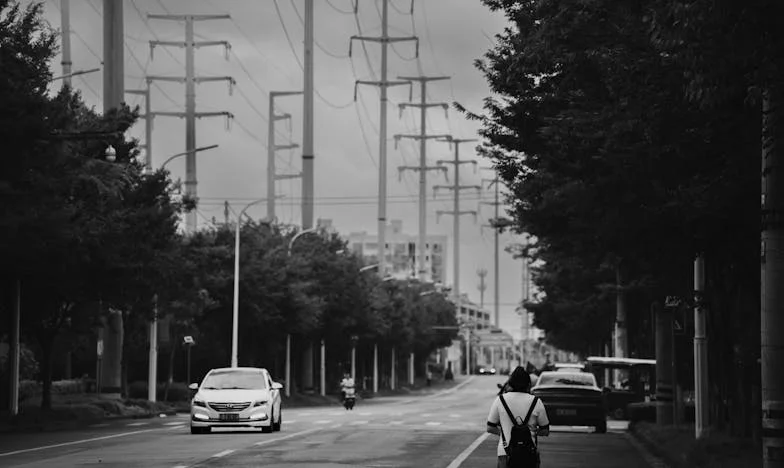When Your Father Doesn’t Believe in You: My Fight for Independence
“You’ll be back in a month, Sarah. You don’t know the first thing about living on your own.”
My father’s voice thundered through the kitchen, ricocheting off the faded wallpaper and settling like a stone in my chest. I gripped the handle of my suitcase so hard my knuckles went white, but I kept my eyes steady on his. I was twenty-two, fresh out of college, and every other emotion—fear, excitement, determination—wrestled inside me, but none as strong as the hurt from his words.
“Dad, I know it won’t be easy. But I have to do this.”
He scoffed, shaking his head. “You think just because you got a degree in art history you can pay rent in Boston? Wake up. Life’s not a gallery opening.”
My mother hovered in the doorway, hands wringing a dish towel, lips pressed together to keep from crying. My little brother, Tommy, pretended not to listen from behind the fridge but I saw the worry in his eyes. My father had always been the kind of man who measured worth in paychecks and practicality—he’d worked three jobs to keep us afloat after my grandfather’s heart attack. “Dreams are for people with a safety net,” he’d say.
But I was tired of living under that roof, of being reminded every day of what I couldn’t do. My father’s doubt burned deeper than any fear of failing on my own. It was the reason I sent out a hundred resumes, the reason I took the unpaid internship at the museum, the reason I was willing to share a roach-infested apartment in Allston with two girls I barely knew.
That first night in Boston, I lay awake on a mattress on the floor, the city noises leaking through broken blinds, my phone glowing with a single unread text from Mom: “Call me if you need anything.” I didn’t call. I couldn’t tell her I was already doubting myself—that the pipes rattled, my roommates were strangers, and dinner was peanut butter on toast.
Each day at the museum, I fetched coffee, catalogued dusty archives, and smiled until my cheeks hurt. Mr. Weller, my supervisor, barely acknowledged me. I watched curators breeze past in tailored suits, wondering if I’d ever belong. Rent was due in two weeks and my bank account was a joke. My roommates, Jenna and Lindsay, were kind but busy, their lives a carousel of classes and shifts at the bar. I missed home, but I couldn’t go back. Not after what Dad had said.
One night, after a twelve-hour day, I called home. Mom answered, her voice soft and tired.
“How’s the city treating you, honey?”
“It’s… a lot. But I’m okay. Is Dad there?”
A pause. “He’s out back. You want me to get him?”
I hesitated, then shook my head even though she couldn’t see. “No, it’s fine. Tell Tommy I say hi.”
I hung up, feeling the weight of what I hadn’t said. I wanted to hear my father’s voice, wanted him to tell me I could do it. But I knew he wouldn’t. Not yet.
The days blurred. I lived on ramen and dollar pizza. My shoes fell apart in the rain. At the museum, I overheard Mr. Weller say, “She seems lost, but at least she’s eager.” I cried in the staff bathroom, then wiped my face and went back to work. The city was beautiful in the fall; I walked for hours, letting the chill numb my doubts.
A month passed. I didn’t go home. I called Mom less, sent Tommy memes, ignored Dad’s silence. Then, one afternoon, a curator quit without notice. Mr. Weller rushed into the office, frazzled.
“Sarah, can you help with the new exhibit? I need someone to set up the displays.”
My heart pounded. “Of course.”
I stayed late, arranging artifacts, making labels, double-checking lighting. Mr. Weller watched quietly. When I finished, he nodded. “Good work. We could use more of your eye around here.”
It was the first real praise I’d gotten in weeks. I floated home, grinning for the first time since I’d arrived.
That weekend, Jenna and Lindsay invited me out. We drank cheap wine in our cramped kitchen and laughed about our disastrous love lives. I realized, slowly, that I wasn’t alone. Everyone was struggling, everyone was scared. We were all just pretending a little harder every day.
Two months in, I got my first tiny paycheck. It barely covered groceries, but I framed the stub anyway. I called home.
Dad answered. “Hello?”
I froze. “It’s me.”
A long silence. “How’s Boston?”
“Hard. But… I’m doing it, Dad. I got promoted.”
He didn’t reply right away. Then, quietly, “I’m proud of you, Sarah.”
I pressed the phone to my ear, blinking tears. “Thanks, Dad.”
We didn’t say much more. But it was enough.
I know my story isn’t unique. So many of us are torn between the people we love and the life we want. But I learned that sometimes, proving yourself isn’t about changing someone else’s mind—it’s about believing in yourself, even when no one else does.
Do you remember the first time you had to stand up to someone you loved? How did you find the courage to keep going when they didn’t believe in you?
